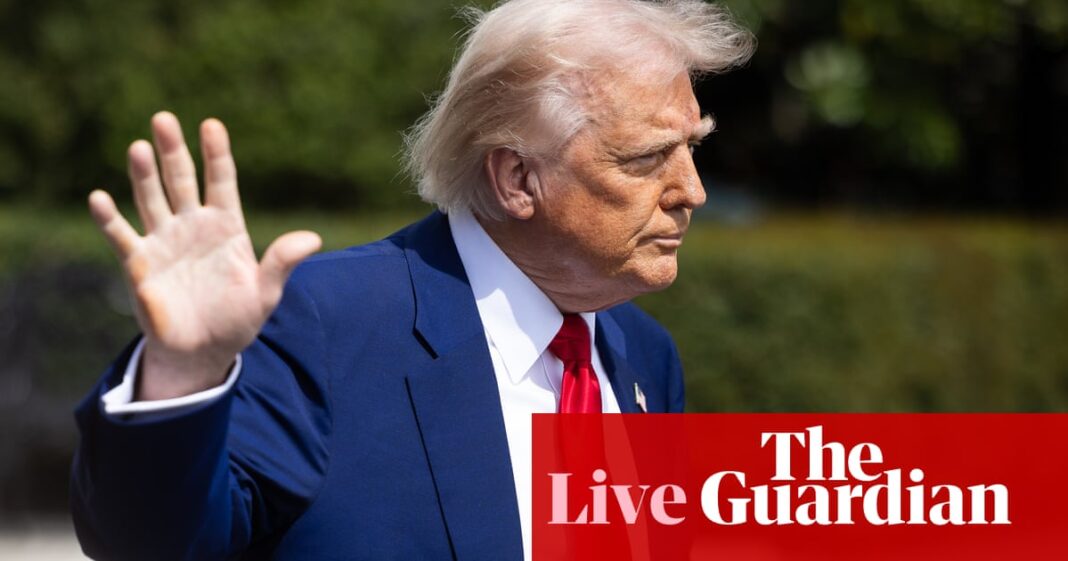The air in Asian markets is thick with anxiety, as stocks plummet further in the wake of the IMF’s chilling warning: President Trump’s tariffs pose a “significant risk” to the global economy. This isn’t just another market dip; it’s a tremor that ripples through the interconnected web of international finance. As investors grapple with the potential fallout, one question hangs heavy: Will the Trump administration’s trade war trigger a domino effect, pulling the global economy into a downward spiral?

Asian Markets Sink Under Weight of Tariffs
Disproportionate Impact on Developing Economies

Across the Pacific Rim, economies are grappling with the fallout of Trump’s aggressive tariffs. Fiji, a small island nation heavily reliant on exports to the US, has been particularly hard hit, facing a 32% tariff on its goods. This represents a significant blow to a country already facing economic challenges. Vanuatu and Nauru also face substantial tariffs of 22% and 30%, respectively.
The disproportionate impact on developing economies raises serious questions about the fairness and effectiveness of Trump’s trade strategy. These countries often lack the resources and bargaining power to withstand such trade disruptions, potentially pushing them deeper into economic vulnerability.
Repercussions for Trade Partnerships
The escalating trade tensions have forced smaller economies to reconsider their trade partnerships and explore alternative markets. Fiji’s reliance on the US as its primary export destination has made it especially vulnerable. This situation highlights the need for diversification and resilience in global trade relationships.
The IMF’s warning underscores the interconnectedness of the global economy. Actions taken by one country, even a superpower like the US, can have ripple effects across the world, disproportionately impacting the most vulnerable economies.
The IMF Warns of Global Economic Risks
Weakening Global Recovery
The International Monetary Fund (IMF) has expressed growing concern that Trump’s tariffs could derail the fragile global economic recovery. The IMF’s latest World Economic Outlook report predicts a “sluggish recovery” with risks of further economic slowdown. The report warns that the trade war could exacerbate existing inequalities and undermine international cooperation.
Threat to International Cooperation
The escalating trade tensions threaten to undermine the delicate web of international agreements and institutions that underpin the global economy. This breakdown in cooperation could have far-reaching consequences for global stability and prosperity.
Exacerbating Economic Inequalities
The IMF’s warning highlights the potential for Trump’s trade policies to widen the gap between rich and poor, both within and between countries. Developing economies, already facing significant challenges, are particularly vulnerable to the negative impacts of trade protectionism.
Potential Ripple Effects on US Job Markets and Consumer Confidence
The escalating trade tensions fueled by Trump’s tariffs are casting a long shadow over the US economy. Economists are closely monitoring the potential impact on job markets and consumer confidence, two key pillars of economic stability.
A significant escalation in tariffs could lead to a reduction in consumer spending, as businesses pass on the increased costs to consumers. This could result in job losses across various sectors, particularly those heavily reliant on imported goods. The manufacturing sector, already struggling with automation and global competition, could be particularly vulnerable.
Furthermore, the uncertainty surrounding trade policy can dampen business investment and hiring. Businesses may delay expansion plans or hold back on hiring new employees if they are unsure about the future costs of doing business.
The psychological impact of trade tensions on consumer confidence cannot be underestimated. Increased prices and fears of an economic downturn can lead to a decrease in consumer spending, creating a downward spiral that can further harm the economy.
Legal Challenge to Trump’s Tariff Power
A conservative legal group, the New Civil Liberties Alliance (NCLA), has taken a bold step by filing a lawsuit challenging the legality of President Trump’s sweeping tariffs on Chinese imports. The lawsuit, filed in federal court in Florida, argues that Trump exceeded his authority by invoking emergency powers to impose the tariffs.
Separation of Powers at Stake
The NCLA contends that the President’s actions violate the Constitution’s separation of powers by usurping Congress’s authority to regulate tariffs. Traditionally, the power to impose tariffs has been vested in Congress, which has the authority to enact trade laws and set import duties.
Expert Analysis
Legal experts are closely scrutinizing the lawsuit and its potential implications for future trade disputes. Some argue that the lawsuit raises important constitutional questions about the limits of presidential power, particularly in the area of trade policy.
Others suggest that the lawsuit’s success is uncertain, given the broad discretion granted to presidents under emergency powers. The outcome of the case could have far-reaching consequences for the balance of power between the executive and legislative branches.
Global Leaders Condemn Trump’s Trade War Tactics
The United States’ imposition of tariffs on Chinese goods has sparked international condemnation, with many of America’s allies criticizing the move as “brutal” and “unfounded.” The backlash highlights the potential for trade wars to damage international relationships and undermine global stability.
Diplomatic Repercussions
European leaders, including French President Emmanuel Macron, have voiced strong opposition to the tariffs, warning that they could trigger a spiral of protectionism that would harm the global economy. The European Union is considering retaliatory measures against US goods, escalating the trade conflict.
Impact on Pacific Nations
In the Pacific, countries like Fiji, Vanuatu, and Nauru are facing significant economic hardship as a result of the tariffs. These nations rely heavily on exports to the US, and the higher tariffs are putting a strain on their economies.
The situation has raised concerns about the potential for a diplomatic crisis, with Pacific nations seeking to find ways to mitigate the negative impact of the tariffs.
Potential Responses from Other Countries
Other countries may choose to respond to the US tariffs in a variety of ways. Some may impose retaliatory tariffs on US goods, while others may seek to diversify their trade partners or explore alternative markets.
The global response to the US tariffs will depend on a complex interplay of economic, political, and diplomatic factors. The outcome of this trade war could have far-reaching consequences for the global economy and international relations.
Conclusion
The Asian markets are reeling, mirroring a global anxiety fueled by President Trump’s escalating trade war with China. The IMF’s stark warning, labeling the tariffs a “significant risk” to the global economy, has only amplified these fears. The article meticulously details the domino effect: plummeting stock values, a weakening yuan, and growing economic uncertainty in key Asian markets. These tremors are a stark reminder that the consequences of protectionist policies extend far beyond national borders, impacting the delicate balance of the global economic system. The IMF’s cautionary words carry immense weight, urging a reconsideration of the current course. The potential for a trade war to spiral into a full-blown economic crisis is a chilling prospect. What begins as a battle of tariffs could quickly morph into a global recession, leaving no nation unscathed. As the situation unfolds, all eyes will be on the negotiating table, hoping for a swift resolution that prioritizes global economic stability over short-term political gains. The decisions made today will reverberate for years to come, shaping the future of international trade and the global economy as we know it. Will we choose cooperation or succumb to the siren song of protectionism? The answer, ultimately, lies in our collective hands.

